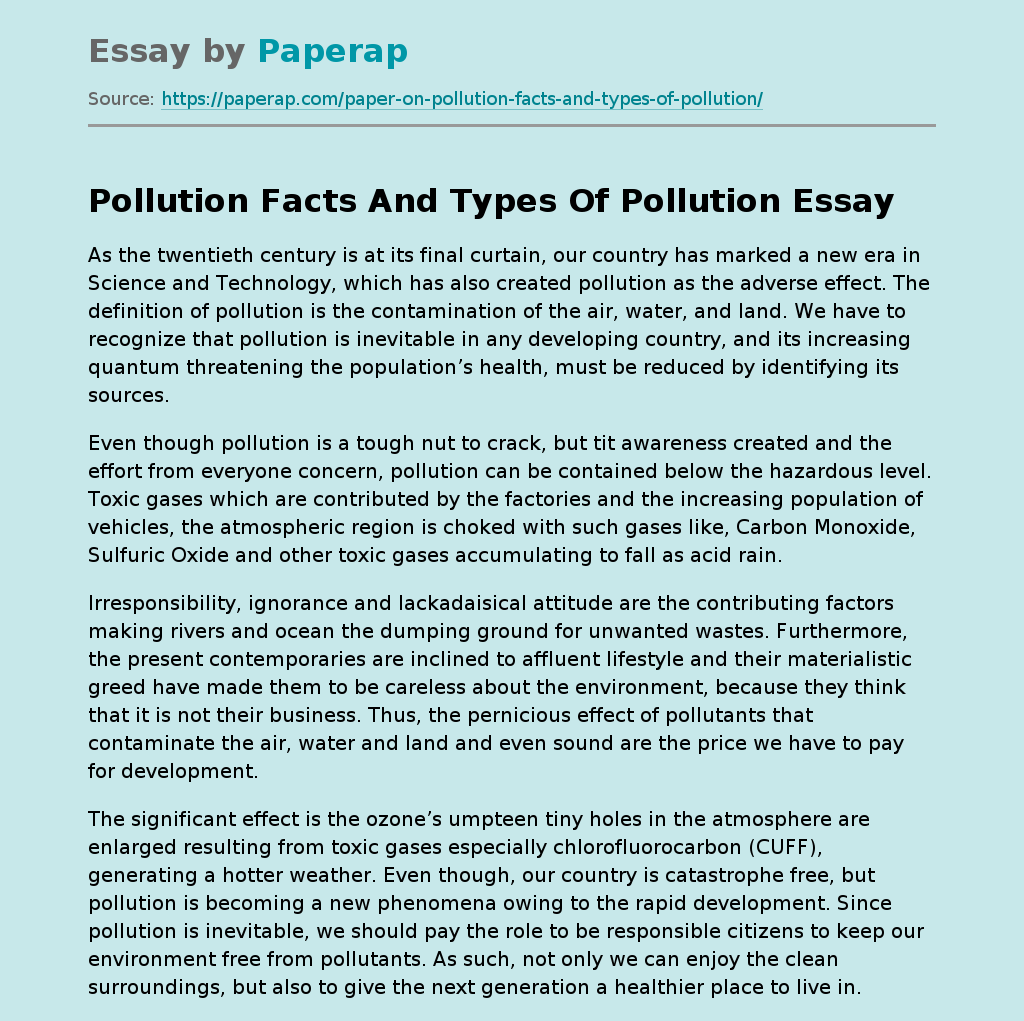Pollution Facts And Types Of Pollution
As the twentieth century is at its final curtain, our country has marked a new era in Science and Technology, which has also created pollution as the adverse effect. The definition of pollution is the contamination of the air, water, and land. We have to recognize that pollution is inevitable in any developing country, and its increasing quantum threatening the population’s health, must be reduced by identifying its sources.
Even though pollution is a tough nut to crack, but tit awareness created and the effort from everyone concern, pollution can be contained below the hazardous level.
Toxic gases which are contributed by the factories and the increasing population of vehicles, the atmospheric region is choked with such gases like, Carbon Monoxide, Sulfuric Oxide and other toxic gases accumulating to fall as acid rain.
Irresponsibility, ignorance and lackadaisical attitude are the contributing factors making rivers and ocean the dumping ground for unwanted wastes. Furthermore, the present contemporaries are inclined to affluent lifestyle and their materialistic greed have made them to be careless about the environment, because they think that it is not their business.
Thus, the pernicious effect of pollutants that contaminate the air, water and land and even sound are the price we have to pay for development.
The significant effect is the ozone’s umpteen tiny holes in the atmosphere are enlarged resulting from toxic gases especially chlorofluorocarbon (CUFF), generating a hotter weather. Even though, our country is catastrophe free, but pollution is becoming a new phenomena owing to the rapid development.
Since pollution is inevitable, we should pay the role to be responsible citizens to keep our environment free from pollutants. As such, not only we can enjoy the clean surroundings, but also to give the next generation a healthier place to live in.
Pollution Facts And Types Of Pollution. (2019, Nov 27). Retrieved from https://paperap.com/paper-on-pollution-facts-and-types-of-pollution/

